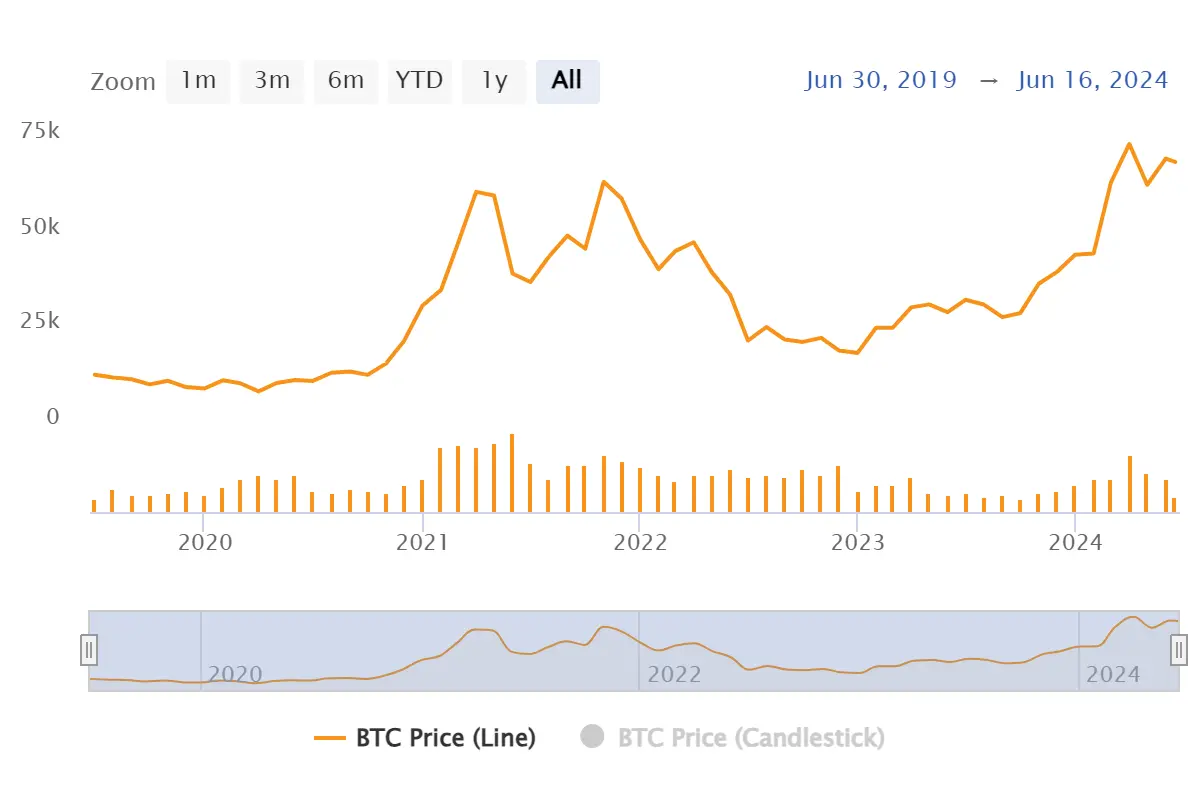Inflation is the rise in prices and therefore the decline in the purchasing power of money. Inflation can have a significant impact on your money and investment portfolio (hopefully you have one).
What inflation hedging means is strategically investing in assets that are expected to maintain or increase in value over time, even as general prices in the country rise. This is decisive step In keeping your wealth and financial portfolio healthy.
The main goal is to invest in diversified asset classes that will help offset the impact of inflation as you have investments that rise in value and outpace the current rate of inflation.
But why is hedging against inflation necessary?
To help clarify, Let’s look at this example.If inflation rises at 3% per year, this means that $100 today will be worth $97 next year in purchasing power terms.
Over time, this takes a toll on vehicles which in turn reduces the value of your savings and assets if not properly cared for.
In this post, we will look at different investment techniques to best hedge against inflation.
Table of contents
Best Assets to Protect Against Inflation
Whether you’re investing to achieve financial independence or looking to protect your money during a recession, investing in diversified asset classes is our top suggestion.
This advice is no different when it comes to finding the best way to hedge against inflation.
Let’s take a look at our major investments:
Exchange Traded Funds
Exchange-traded funds (ETFs) offer a unique opportunity to invest in a variety of assets. ETFs typically consist of multiple investments such as stocks, bonds, commodities, and more recently, cryptocurrencies. They are a great tool for hedging against inflation due to their diversified nature.
✅Positives:
- Diversification helps reduce risk: ETFs typically hold a variety of assets and are spread across different sectors and industries. This helps mitigate the impact of inflation on a single asset class. The most popular ETFs are iShares MSCI World, Standard & Poor’s 500and the Nasdaq 100.
- Ease of trading: ETFs are traded on major exchanges, making them easy to buy and sell. The first ETF was traded on the Toronto Stock Exchange in 1990.
❌cons:
- May include assets that do not perform well during inflation.
- Lack of Control: Since you can’t split the ETF, you can’t choose which assets make up your investment.
👌suitable for:
- New investors
- Investors are looking for low to moderate risk.
- Want an easy management and trading option?
- Fast liquidity
Fun fact! There are over 1,600 unique ETF options listed on over 5 different exchanges.
Treasury Bonds (TIPS)
Treasury Inflation-Protected Securities, also known as TIPS, are a type of bond issued by the U.S. government that is designed to help protect you against inflation. What they do is adjust their principal value in line with changes in the Consumer Price Index (CPI). This ensures that your bond investment retains its purchasing power.
✅Positives:
- Inflation protection: The protection that the government helps provide is measured by the Consumer Price Index.
- Government Guarantee: As US Treasury securities, Treasury Inflation-Protected Securities are backed by the US government, meaning they are the safest investments available.
- Semi-annual Interest Payments: You get interest paid twice a year at a fixed rate.
❌cons:
- Interest Rate Risk: You get protection against inflation, but bond prices can be affected by changes in interest rates. This means that if interest rates rise, the market value of your inflation-protected Treasury bonds could fall.
- Lower Initial Returns: Inflation-protected Treasury bonds typically have lower returns than other bonds due to their inflation-protection feature. This is not a good thing if inflation remains low.
👌Suitable for:
- Conservative investors with a low risk tolerance
- Long term investors
- Retirees

Cryptocurrencies
Cryptocurrencies, especially Bitcoin, are a modern hedge against inflation, but they are a powerful asset to own given their finiteness (there are only 21 million Bitcoins in existence). It is important to note that all cryptocurrency assets should be securely stored in cold cryptocurrency wallets, such as the Material Bitcoin wallet. Cold wallets are offline storage devices that keep your private keys safe from hacking attempts and threats.
✅Positives:
- Inflation Protection: Unlike fiat currencies, the supply of many cryptocurrencies is limited, meaning it is difficult to “dilute” their value.
- High returns: In the past five years, Bitcoin has returned 641% (between June 17, 2019 and June 17, 2024).
- Decentralization: Since cryptocurrencies operate on decentralized networks, they reduce the risk of government interference or manipulation. And unlike the TIPS investment class, this separation from governments can also provide advantages.
❌cons:
- Volatility: Cryptocurrencies can be volatile with large fluctuations occurring in short periods.
- Regulation: Since this is a fairly new asset, countries and regions are still working to adapt, clarify and regulate it.
👌suitable for:
- Long Term Investors: Ideal for HODL investments over a long period of time.
- Technology savvy users

Real estate
Owning real estate gives you a tangible asset that helps hedge against inflation. The main goal and advantage is that your property will appreciate in value and will generate monthly rental income, which usually also rises with inflation.
✅Positives:
- Inflation Resistance: Property values and rental income rise with inflation, preserving the purchasing power of your investment.
- Provides income: The property provides you with a steady cash flow.
- Tangible assets
❌cons:
- Lack of liquidity: Selling a property in a time of need may not be as easy or quick.
- Maintenance and Management: Owning a property always requires ongoing maintenance, taxes and property management fees if you don’t want to deal with the day-to-day issues.
👌suitable for:
- Long term investors
- Those looking to generate income

Stores
Investing in stocks is a popular strategy for hedging against inflation. When you buy a stock, you are buying a piece of ownership in a company that has the potential to grow capital or pay dividends. Stocks typically decline during times of inflation, but this can be Opportunity for many investors To buy more shares.
✅Positives:
- Potential for High Returns: Historically, stocks have provided higher returns than other assets when managed properly.
- Dividend Income: If you invest in stocks that pay dividends, you can generate income that helps offset any inflation.
❌cons:
- Market volatility
- Sensitive to the economy: Stocks are affected by economic cycles. During economic downturns, stock prices may decline sharply, affecting your investments.
👌suitable for:
- Long term investors
- Those looking to generate dividend payments
- Professional Traders *You need experience for this step*

Goods
Investing in commodities, including gold, silver, and even art, is a good strategy. Commodities are known to hold their value or even appreciate when inflation rises. This makes them a great addition to your investment portfolio!
✅Positives:
- Historically protected: Commodities like gold and silver are known to hold their value over time. Especially assets like gold, which are considered safe investments during inflation.
- Tangible assets
❌cons:
- Storage: Depending on the type of asset, finding a secure storage solution can be difficult and expensive. For example, artworks require maintenance, insurance coverage, and even temperature-controlled storage.
- Security: Where will you keep these items that meet their storage needs but are still safe from theft?
👌suitable for:
- Long term investors
- Low risk tolerances
- Collectors
The nominal value of the global commodities market is expected to reach USD 131,300.00 billion in 2024.
Historical performance of different hedges
Exchange Traded FundsETFs that mix a variety of assets and companies have proven to be one of the best ways to hedge against inflation. For example, the Vanguard Total World Stock ETF (VT) has returned an average annual return of 8.54% over ten years. This is a remarkable statistic since the average inflation rate in the United States has been 3.30% since 1914.
Treasury Bonds (TIPS)TIPS provide reliable, inflation-adjusted returns, although they are typically lower than other assets.
CryptocurrenciesBitcoin has recently shown great potential as an inflation hedge, despite not having been historically tested in older inflationary periods. It has achieved an annualized return of 67.6% over the ten years from 2014 to today.
Real estateReal estate values and rental income generally rise with inflation, making them a strong long-term hedge.
StoresHistorically, stocks have outperformed inflation over the long term but are volatile in the short term.
GoodsCommodities like gold and oil typically gain in value during periods of inflation. However, you need to hold these investments for the long term to get a decent return.
Why You Should Hedge Against Inflation
Hedging against inflation is essential for every investor to preserve the purchasing power of their money.
Investing in some or all of these asset classes will help you diversify your investment portfolio, which will help protect your savings from inflation and help your wealth grow during volatility.
common questions
What is the best way to hedge against inflation?
- There is no single best way to hedge against inflation. The trick is to diversify your investments according to your risk tolerance and future goals.
Can stocks protect themselves from inflation?
- Yes, stocks can protect themselves from inflation, as companies typically raise their prices to match inflation. However, stocks can be volatile in the short term.
Is real estate a hedge against inflation?
- Owning real estate can be a good strategy to hedge against inflation as property values and rents tend to rise along with inflation.
Is Bitcoin a hedge against inflation?
- Bitcoin is considered a hedge because of its limited supply and decentralization. It may be a riskier option for some because it is newer and tied to technology that may turn off older investors.



